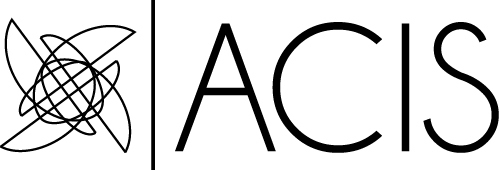
This year’s ACIS-CAIS conference featured a healthy number of panels on contemporary Irish fiction. What was particularly marked about this year’s conference, however, was the heightened interest in notions of transnationalism and comparative readings of the contemporary Irish novel. A quick survey of some panel titles is illustrative: aside from two sessions on the “Transatlantic,” themes featuring international movement abounded, with a panel on “Transnational Passages,” a Contemporary Narratives panel subtitled “Notes and Passages,” and two other groupings dedicated to “Maps” and “Interstitial Positions.”
Transatlantic readings were particularly well represented—and, perhaps not surprisingly, Colum McCann was one of the most discussed contemporary authors. His most recent novel, Transatlantic, was read twice in relation to Immrama (Andrew Mara and Miriam Mara, North Dakota State U.); once in terms of “the Irish Subject of Passage” (Gregory Castle, Arizona State U.); and once in reference to travel and “Non-Stop Flights” by Danine Farquharson (Memorial U). Alison Garden (U of Edinburgh) also read Everything in this Country Must in the context of “Northern Ireland and transnational trauma.” (Two other McCann novels were discussed: Let the Great World Spin was read in the context of universalizing loss and recovery, and Ruth Gilligan (Exeter U) analyzed Zoli through “A New Transcultural Approach.”) Clearly, McCann’s work was a recurring subject.
This transnational/international impulse was not limited to McCann, however. Jennifer Slivka (Virginia Wesleyan College) considered “transnational spaces in Emma Donoghue’s Landing,” while Eva Roa White (Indiana U-Kokomo) addressed “Roddy Doyle’s Global Irish Identity.” Comparative readings were also popular: Annie Galvin (U Va) compared Kevin Barry’s City of Bohane to Michael Ondaatje’s Anil’s Ghost, and Anne-Lise Peretto (U of Savoie) examined “Joseph O’Connor’s novels as seen by the French.” Andrew Auge (Loras College), in turn, discussed Roddy Doyle’s The Deportees in terms of both Irish and American immigration.
These valuable international and transatlantic perspectives may signal the continuing and vexing interest in, and perhaps broadening of, definitions of home and questions of Irish identity in readings of contemporary Irish fiction. On a panel dedicated wholly to Irish national identity, Kristi Good (U of Pittsburgh) offered a particularly interesting analysis of how Sebastian Barry plumbs his familial history to comment on Irish identity more broadly. Comparative and international contexts continue to offer promising, less reductive directions for the ongoing discussions about representations of Irish national identity.
Finally, although questions of gender seemed slightly less represented on contemporary fiction panels this year, Eimear McBride’s searing new novel, A Girl is a Half-Formed Thing, has begun to provoke promising analysis and discussion. Jane Elizabeth Doughtery (South Illinois U-Carbondale) gave a thought-provoking reading of the novel in relation to gendered lyric childhood, and Paige Reynolds (College of the Holy Cross), in a brilliant closing keynote, argued that McBride “resurrects [Modernist conventions] to enable a critique of childhood abuse.” Such readings suggest a productive and varied critical future ahead for this much-acclaimed new work.
